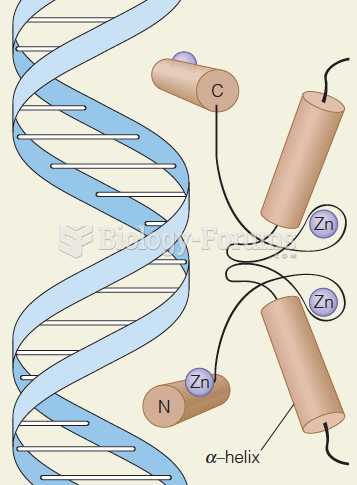|
|
|
There are more nerve cells in one human brain than there are stars in the Milky Way.
People with high total cholesterol have about two times the risk for heart disease as people with ideal levels.
Blood is approximately twice as thick as water because of the cells and other components found in it.
Adolescents often feel clumsy during puberty because during this time of development, their hands and feet grow faster than their arms and legs do. The body is therefore out of proportion. One out of five adolescents actually experiences growing pains during this period.
Immunoglobulin injections may give short-term protection against, or reduce severity of certain diseases. They help people who have an inherited problem making their own antibodies, or those who are having certain types of cancer treatments.







